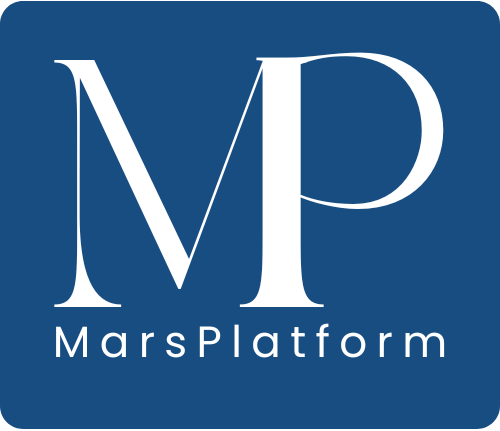“These exercises encourage introspection, planning, and active engagement in practices that contribute to building and protecting a strong professional reputation.”
Thank you for reading this post, don't forget to subscribe!
Power Play Perspectives
Insight: 13
Study the importance of building a powerful reputation and how to protect it
“Power Play Perspectives” series, “Study the importance of building a powerful reputation and how to protect it,” we delve into the realms of personal branding and reputation management.
A strong reputation is a crucial asset in any professional and personal setting, acting as a silent ambassador that precedes you in every room and conversation. Here’s how to build and safeguard this invaluable asset:
Building and Protecting a Powerful Reputation
Consistently Deliver Excellence
Your reputation is built on what you consistently do, not what you occasionally achieve. Strive for excellence in your work, reliability in your commitments, and integrity in your actions. Excellence attracts recognition, opportunities, and respect, forming the cornerstone of a powerful reputation.
Cultivate Professional Relationships
Strong, positive relationships are the bedrock of a good reputation. Nurture your network by being supportive, offering value without immediate expectations of return, and maintaining open and honest communication. The goodwill you generate will be a key defender of your reputation.
Engage in Thought Leadership
Share your knowledge, insights, and experiences through speaking engagements, publications, or social media. Thought leadership not only enhances your reputation as an expert in your field but also contributes to the broader community, further solidifying your standing.
Act with Integrity
Integrity is non-negotiable. Be truthful, transparent, and ethical in all your dealings. A reputation built on integrity is resilient and commands respect, even in challenging times.
Manage Your Online Presence
In the digital age, your online presence is a significant component of your reputation. Be mindful of the content you share and engage with, ensuring it aligns with the professional image you wish to project. Regularly monitor your online reputation to address any negative or incorrect information swiftly.
Respond to Criticism Constructively
No one is immune to criticism, but how you respond can define your reputation. Address legitimate critiques with grace and a commitment to improvement. Constructive engagement with criticism demonstrates maturity and a proactive attitude.
Give Back
Contributing to your community or industry through volunteering, mentoring, or charitable activities enhances your reputation by showcasing your values and commitment to positive impact beyond your personal or professional gain.
Protect Your Reputation Proactively
Be proactive in safeguarding your reputation. This includes avoiding unnecessary controversies, maintaining confidentiality, and being cautious in potentially compromising situations.
Prevention is often easier than damage control. A powerful reputation is a composite of your actions, contributions, and character.
Building and protecting this reputation requires consistent effort, strategic engagement, and a steadfast commitment to your values.
As you navigate your path, remember that a strong reputation not only opens doors but also serves as a lasting legacy of your impact.
Asking Mars AI
Based on the content regarding the importance of building and protecting a powerful reputation, here are 20 exercise prompts designed to deepen understanding and apply the principles discussed:
1. Reflect on Excellence: Identify an area in your professional life where you can consistently deliver excellence. Plan steps to achieve and maintain this level of performance.
2. Analyze Your Professional Network: Assess the current state of your professional relationships. Identify key relationships that need nurturing and plan an approach to strengthen them.
3. Thought Leadership Strategy: Draft a plan for sharing your knowledge and insights through a specific medium (blog, podcast, public speaking) over the next six months.
4. Integrity Self-Assessment: Reflect on recent situations where your integrity was tested. Write about how you handled these situations and how you might improve in the future.
5. Digital Footprint Audit: Conduct an audit of your online presence across all social media platforms. Identify any content that doesn’t align with the professional image you wish to project and plan corrective actions.
6. Criticism Response Plan: Think of a recent piece of criticism you received. Write a constructive response that demonstrates maturity and a commitment to improvement.
7. Community Contribution Plan: Identify a way you can give back to your community or industry. Plan a volunteering or mentoring initiative you can start or join.
8. Reputation Safeguarding Checklist: Create a checklist of actions and behaviors to avoid in order to protect your reputation from unnecessary harm.
9. Excellence Recognition Log: Keep a weekly log of your work that you believe exemplifies excellence. Reflect on the impact of these actions on your reputation.
10. Professional Relationship Building Activities: List five activities or gestures you can undertake to strengthen your professional relationships without expecting anything in return.
11. Thought Leadership Content Calendar: Create a content calendar for the next three months that outlines topics you will address in your thought leadership efforts.
12. Integrity Dilemmas Workshop: Write down three hypothetical professional dilemmas that test integrity. Discuss your potential responses and the reasoning behind them.
13. Online Reputation Management Plan: Develop a comprehensive plan for managing your online reputation, including regular monitoring and engagement strategies.
14. Criticism Journaling Exercise: Start a journal where you document criticisms received, your feelings about them, and how you plan to address or learn from each.
15. Community Impact Project Proposal: Draft a proposal for a project that would allow you to contribute positively to your community or industry, detailing objectives and expected outcomes.
16. Proactive Reputation Defense Scenario: Describe a scenario where your reputation could be at risk and outline proactive measures to defend it.
17. Networking Event Strategy: Plan your approach to an upcoming networking event, including how you will introduce yourself, the value you can offer to new connections, and how you aim to follow up.
18. Social Media Engagement Plan: Outline a plan for engaging with your followers on social media in a way that enhances your reputation and demonstrates your expertise and values.
19. Handling Hypothetical Criticism: Create a hypothetical scenario where you receive public criticism. Write a response that showcases your commitment to growth and the value of constructive feedback.
20. Legacy Letter Exercise: Write a letter to a future professional in your field, sharing advice on building and protecting a powerful reputation based on your own experiences and learnings.



1 Comment